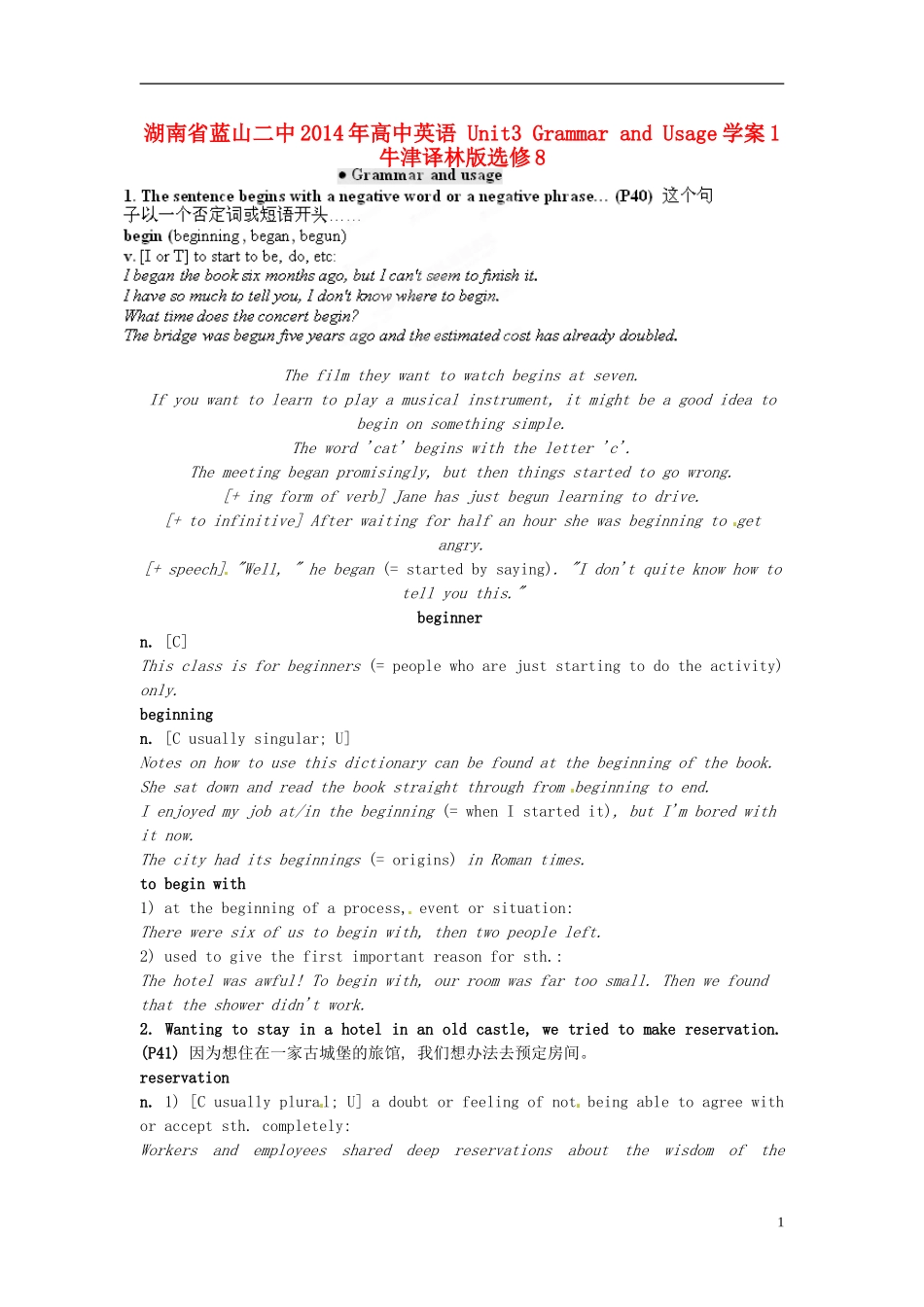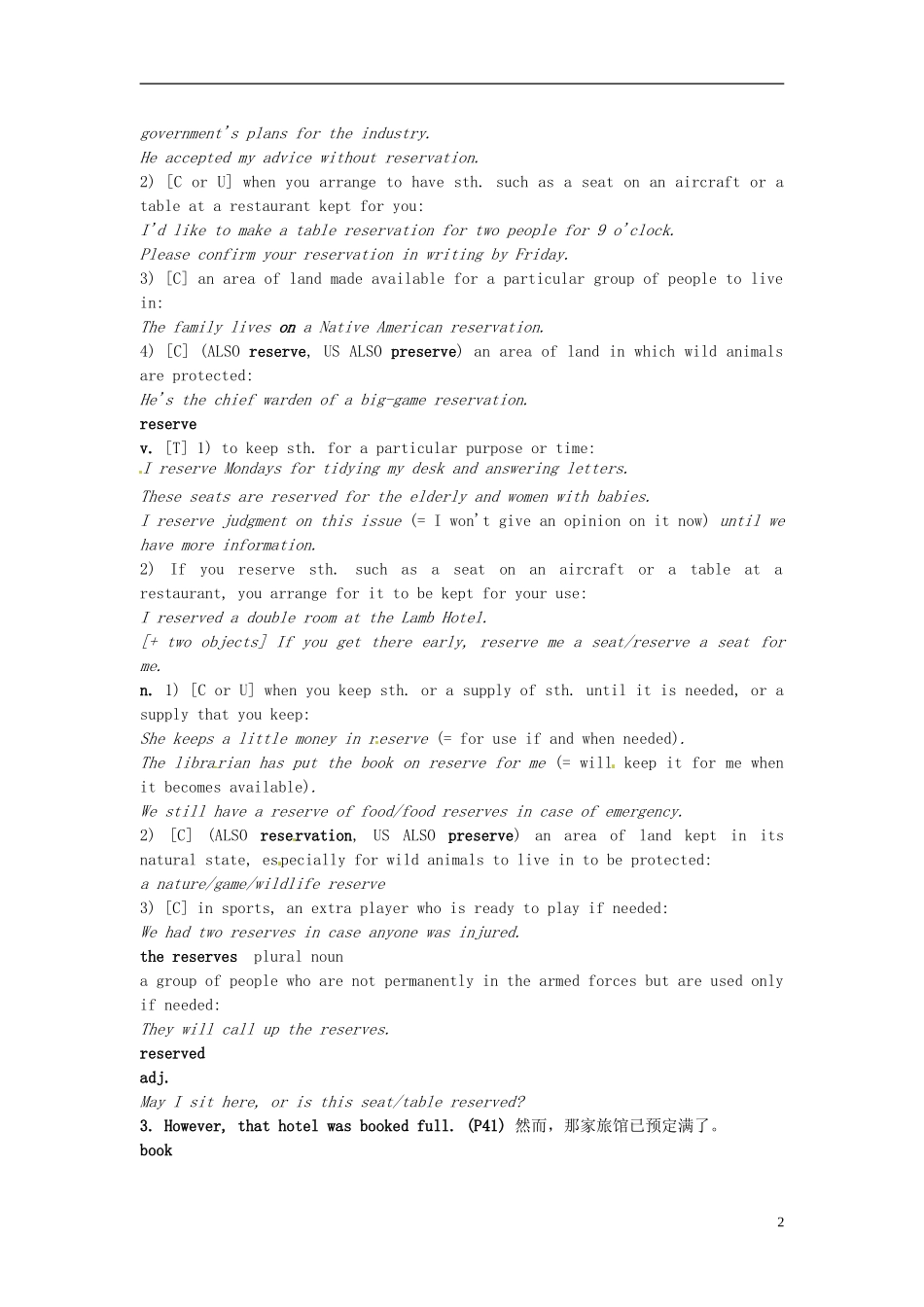湖南省蓝山二中 2014 年高中英语 Unit3 Grammar and Usage 学案 1 牛津译林版选修 8The film they want to watch begins at seven.If you want to learn to play a musical instrument, it might be a good idea to begin on something simple.The word 'cat' begins with the letter 'c'.The meeting began promisingly, but then things started to go wrong.[+ ing form of verb] Jane has just begun learning to drive.[+ to infinitive] After waiting for half an hour she was beginning to get angry.[+ speech] "Well, " he began (= started by saying). "I don't quite know how to tell you this."beginner n. [C] This class is for beginners (= people who are just starting to do the activity) only.beginning n. [C usually singular; U] Notes on how to use this dictionary can be found at the beginning of the book.She sat down and read the book straight through from beginning to end.I enjoyed my job at/in the beginning (= when I started it), but I'm bored with it now.The city had its beginnings (= origins) in Roman times.to begin with1) at the beginning of a process, event or situation:There were six of us to begin with, then two people left.2) used to give the first important reason for sth.:The hotel was awful! To begin with, our room was far too small. Then we found that the shower didn't work.2. Wanting to stay in a hotel in an old castle, we tried to make reservation. (P41) 因为想住在一家古城堡的旅馆, 我们想办法去预定房间。reservation n. 1) [C usually plural; U] a doubt or feeling of not being able to agree with or accept sth. completely:Workers and employees shared deep reservations about the wisdom of the 1government's plans for the industry.He accepted my advice without reservation.2) [C or U] when you arrange...


